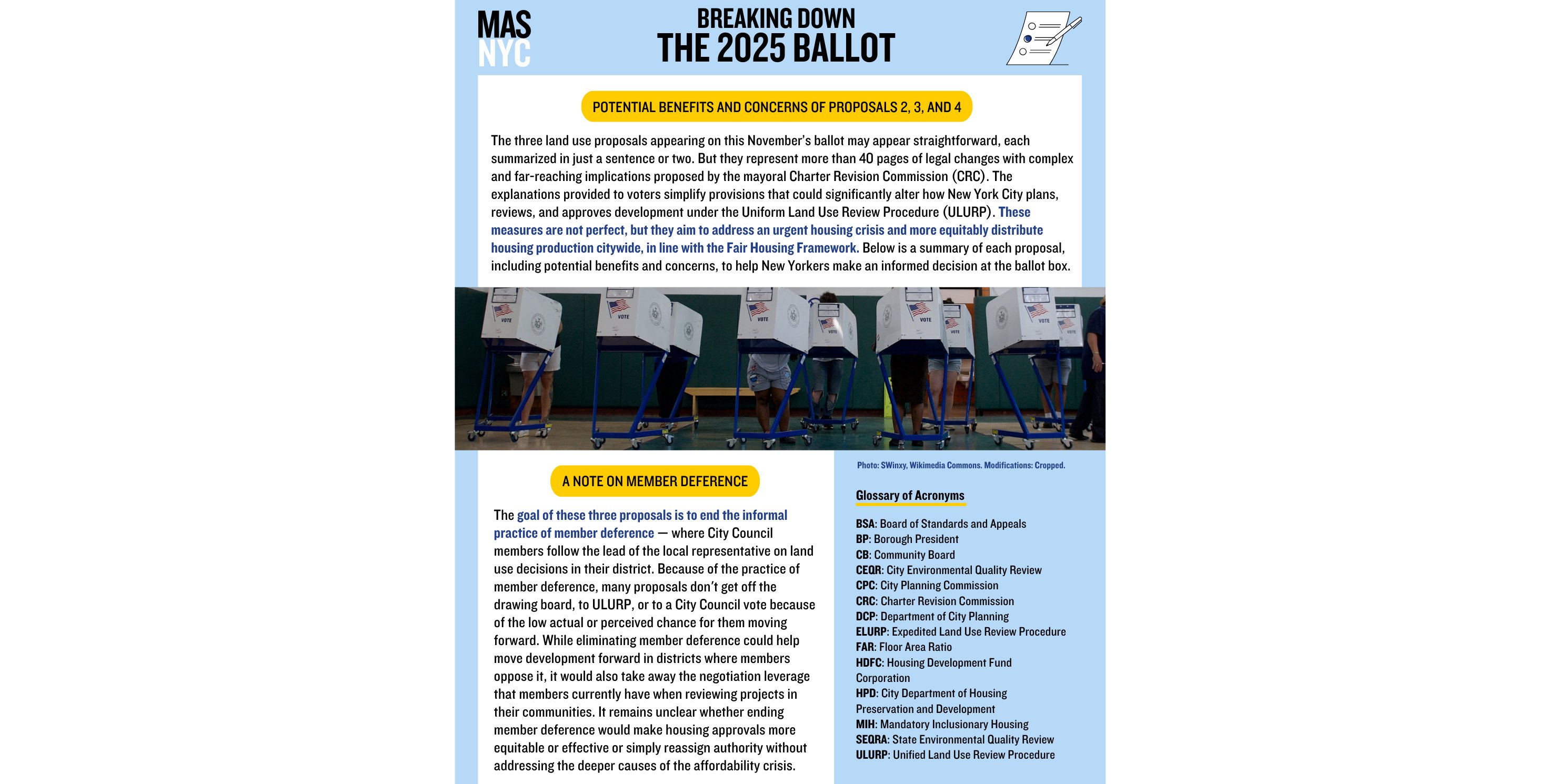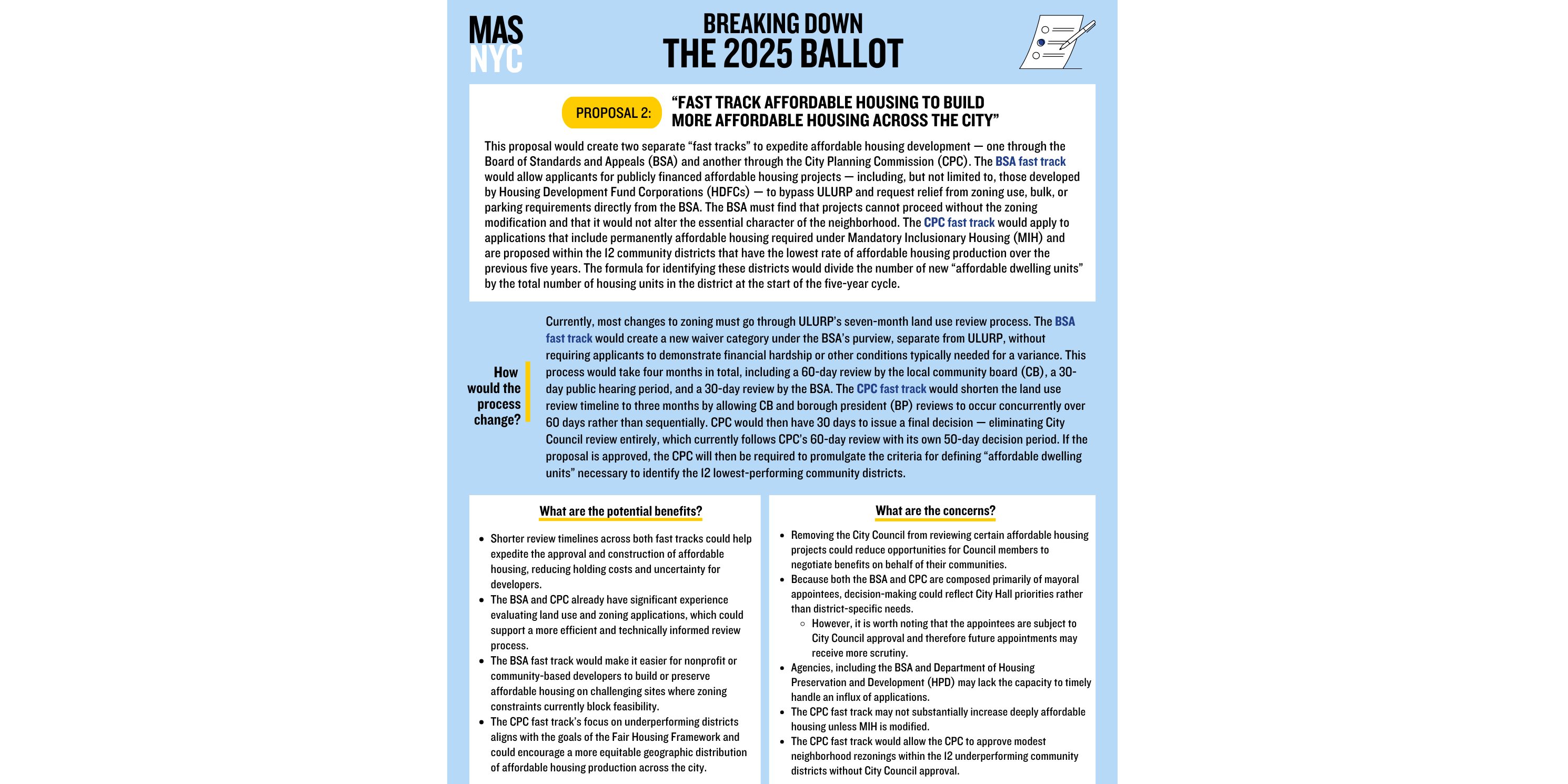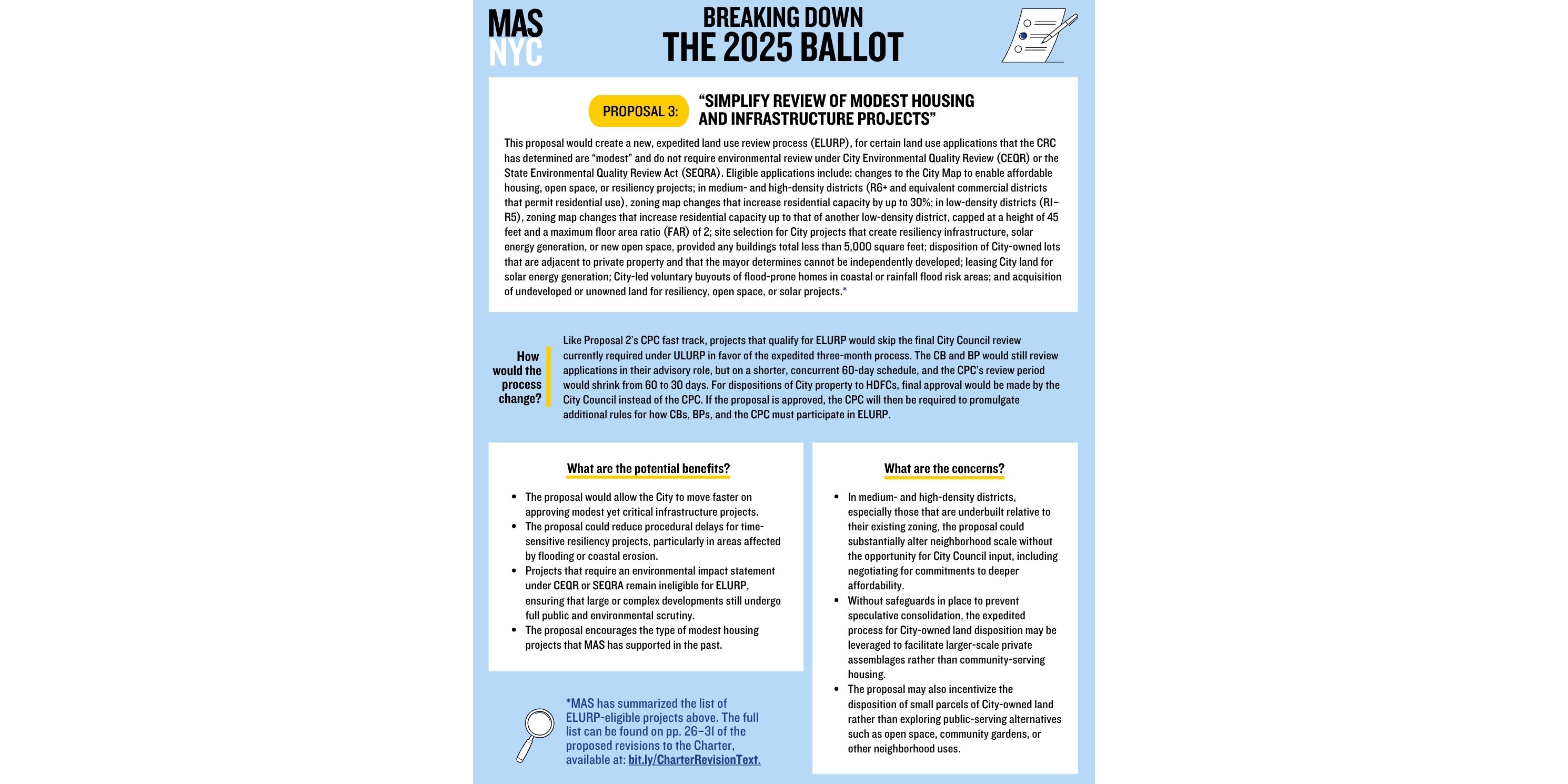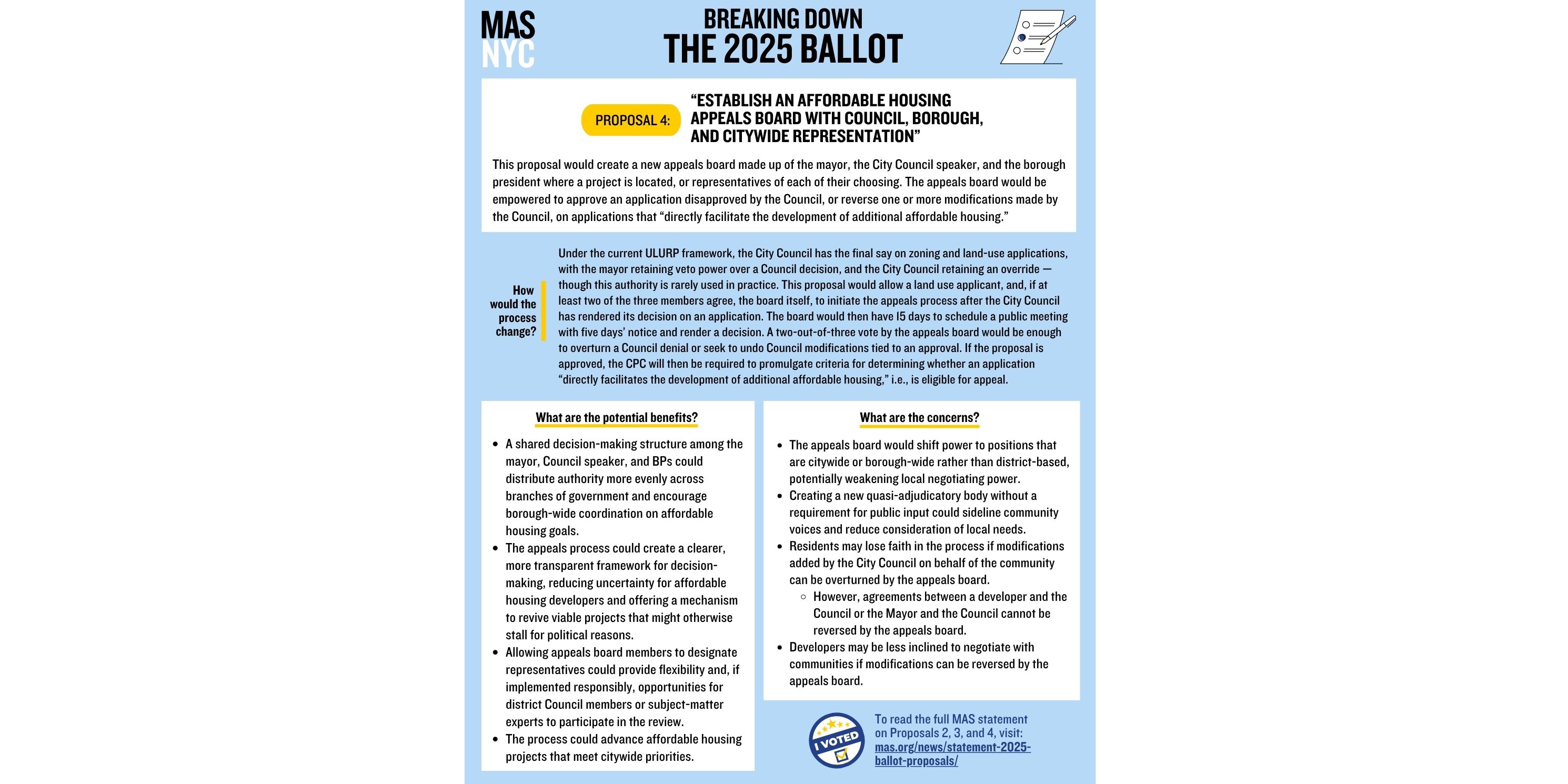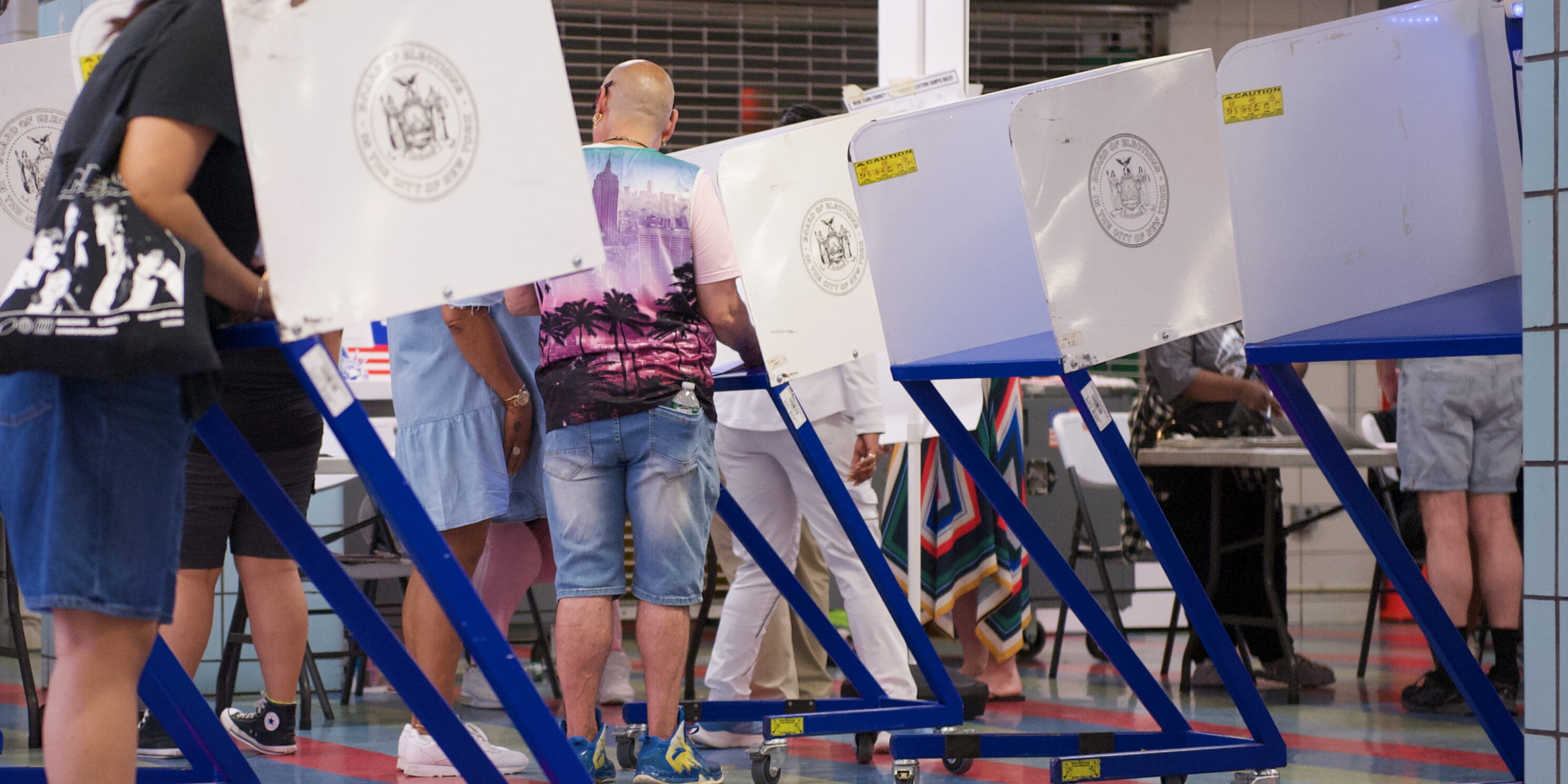MAS Statement on the 2025 General Election: Vote YES on Ballot Proposals 2, 3, and 4
As New Yorkers head to the polls, they will vote not only for a new mayor but also on several important amendments to the City Charter related to land use and housing development. Proposals 2, 3, and 4 on the ballot would create new fast-track processes for affordable housing and other modest developments, along with an appeals board—all aimed at shifting decision-making power from individual City Council members, particularly those with a history of opposing such projects in their districts, a practice known as member deference.
MAS recommends a YES vote on Proposals 2, 3, and 4. These measures are not perfect and raise valid concerns, but they represent a bold effort to address the urgent housing crisis and more equitably distribute housing citywide, in line with the Fair Housing Framework. The existing Uniform Land Use Review Procedure (ULURP) is slow and resource-intensive, making it difficult to meet the city’s housing needs. And in some districts, housing is halted before ULURP even begins due to real or perceived Council member opposition. Incremental changes are not enough; New York City must be willing to test systemic approaches to get projects moving.
Proposal 2 could help deliver more affordable housing in underperforming districts by creating a faster path for rezonings and projects aligned with the City Council’s Fair Housing Framework, while drawing on the City Planning Commission (CPC) and Board of Standards and Appeals (BSA) to streamline review.
Proposal 3 could reduce procedural delays for smaller-scale housing and resiliency projects, moving modest developments forward more efficiently without weakening environmental oversight or public scrutiny.
Proposal 4 would establish an appeals process, balancing local concerns with citywide housing goals and reducing the outsized influence of member deference. These goals reflect urgent needs in the City’s planning process and housing landscape, echoed by hundreds of individuals and organizations during the public testimony period. This is a process MAS advocated for in our July testimony to the Charter Revision Commission.
If these proposals pass, organizations like MAS will play a crucial role in ensuring their implementation promotes affordability, equity, and accountability. This includes monitoring the rulemaking process for how the 12 underperforming districts are identified and holding borough presidents, the Council Speaker, and the new mayor accountable to communities. It may require increased City Council scrutiny of mayoral nominations for new members to the City Planning Commission and Board of Standards and Appeals. MAS will advocate for revisions to MIH to increase affordability; stronger community engagement standards within city agencies; increased agency staffing and budgets; and a comprehensive citywide plan that aligns housing, infrastructure, open space, and transit with long-term equity and climate goals.
Proposals 2, 3, and 4 have the potential to substantially increase housing production at a time when we urgently need it. And yet there are risks, as with any structural change. MAS supports testing these new approaches under close public scrutiny, with continued advocacy needed to ensure that our goals of affordable and modest increases in housing citywide are met.
Read the MAS explainer outlining the potential benefits and concerns associated with each proposal.
